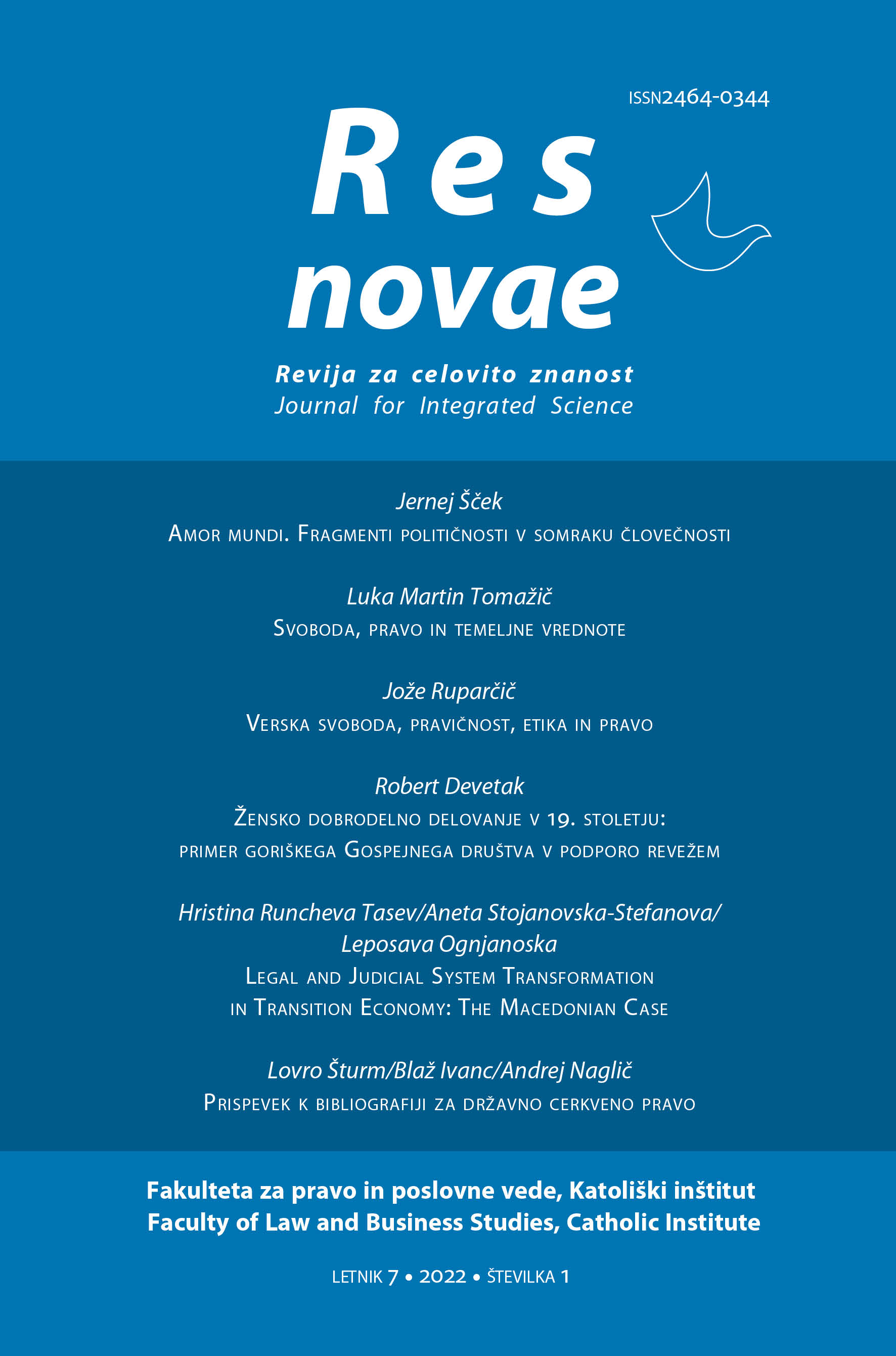Amor mundi. Fragments of Politicalness in the Twilight of Humanness
Jernej Šček
Amor mundi. Fragments of Politicalness in the Twilight of Humanness
DOI: https://doi.org/10.62983/rn2865.22a.1
Key words: new humanism, humanities, humanness, social ethics
Abstract:
The distinguishing antihumanism of late modernity is reflected in the political field as a specific form of contempt of the human world, appearing as an escape from humanity as well as in new forms of blindness of the masses, which are invading the digital sociality. The former formulas of antihumanism have demonstrated their theoretical and practical insufficiency in rescuing political civility and humanness itself from unhuman(istic) dominance of technicity and economism. The new humanism is therefore called to restart the emancipatory role of the studia humanitatis in order to provide thinking and spiritual tools for renovation potentialities of humanness. This article critically discusses some aspects of political and civil health in the twilight of humanness: from the viewpoint of historical and new humanism, comparing them with some fragments from Hannah Arendt, Karl Jaspers, and Max Weber. To achieve an integral survival, it is vital that the humanities resume their servant’s role for qualified life and continue to carry the torch of humanness.
PDF



